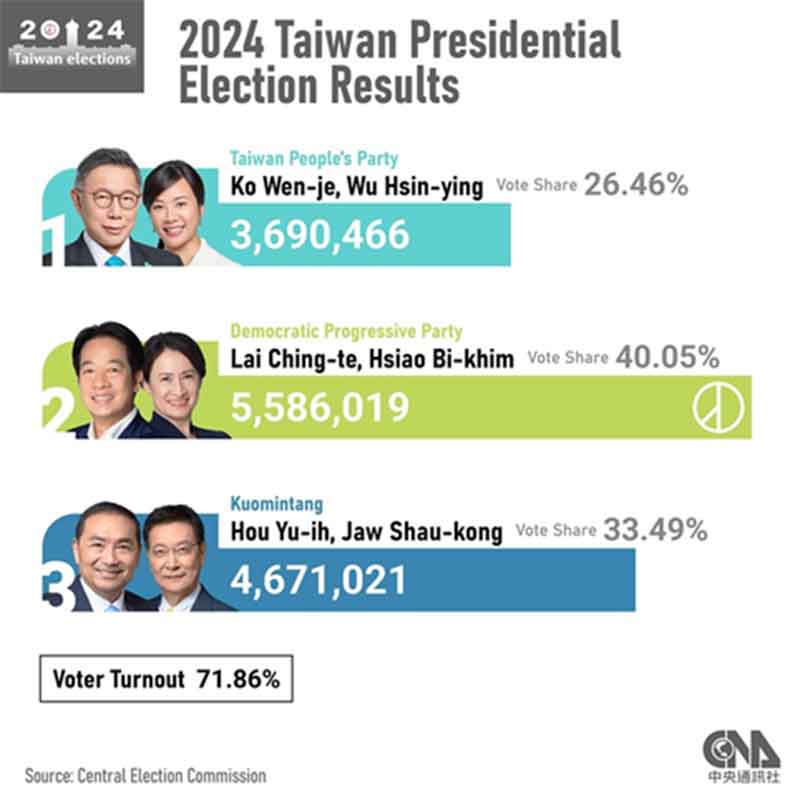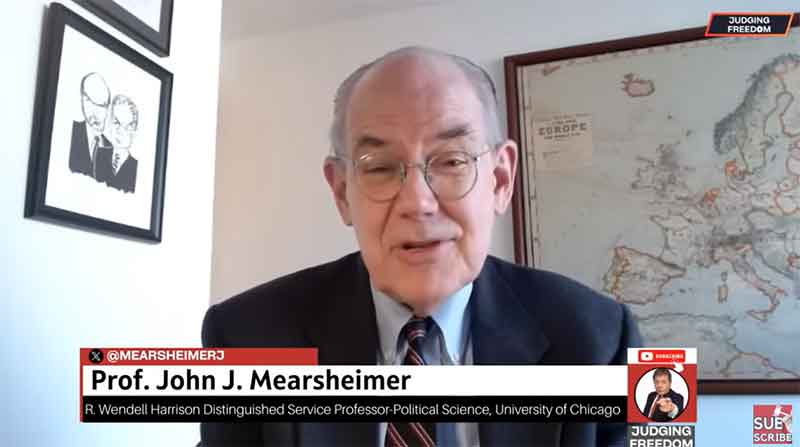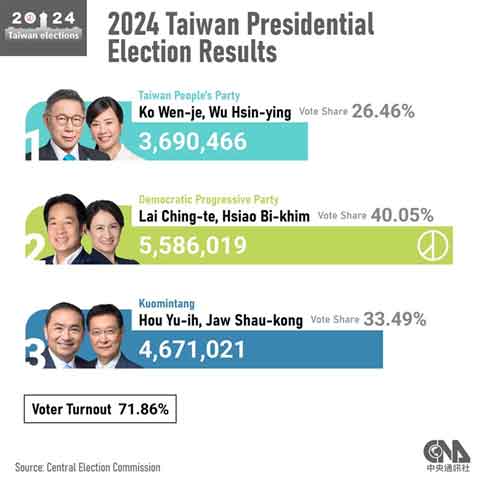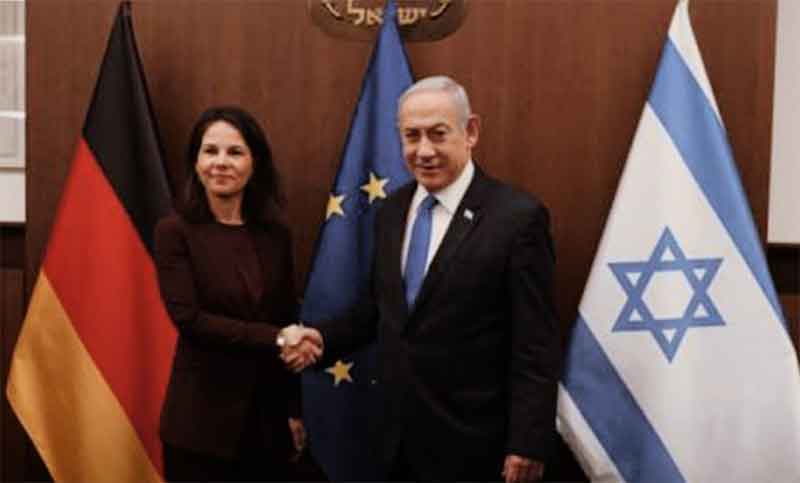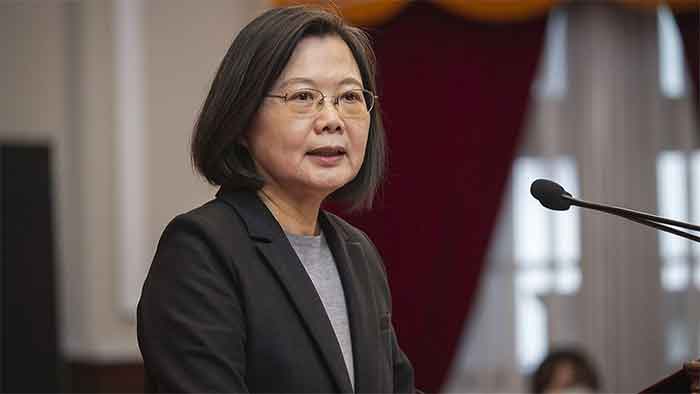
In another move that is deliberately raising tensions with China, Taiwanese President Tsai Ing-wen held a series of high-level meetings in New York on Wednesday and Thursday with American politicians and representatives.
The trip to the US is being held under the guise of a “transit” by Tsai as she proceeds to visit Guatemala and Belize in central America—two of the 13 small countries around the world that maintain diplomatic relations with Taiwan, rather than China. While not formally announced, Tsai reportedly will meet with US congressional House Speaker Kevin McCarthy as she “transits” in Los Angeles on her return to Taiwan on April 7.
China has reacted angrily to the trip. Zhu Fenglian, spokesperson for China’s Taiwan Affairs Office, made the obvious point that Tsai’s transits go well beyond waiting at airports and hotels. She warned that if Tsai meets with House Speaker McCarthy, it would be “another provocation that seriously violates the ‘One China’ principle, harms China’s sovereignty and territorial integrity, and destroys peace and stability in the Taiwan Strait.”
Under the ‘One China’ principle, Beijing regards Taiwan as a renegade province that is an integral part of China. It has called for peaceful reunification on the basis of “one country, two systems,” but has long warned that it would forcibly incorporate the island if the Taiwanese government formally declared independence from China.
The Biden administration responded by dismissing China’s concerns. White House national security spokesman John Kirby told reporters that Tsai’s trip was in line with what she and previous Taiwanese presidents have done in the past. Her “transit is consistent with our longstanding unofficial relationship with Taiwan and is consistent with the United States’ one-China policy, which remains unchanged,” he said, warning China against using it “as a pretext to step up any aggressive activity around the Taiwan Strait.”
In reality, it is US imperialism that is inflaming tensions across the Taiwan Strait as it accelerates its plans for war with China. Under Trump and now Biden, Washington has fundamentally altered the delicate balancing act that led to the establishment of formal diplomatic relations between Beijing and Washington in 1979.
At the time, the US acknowledged that China regarded Taiwan as part of its territory, but did not formally endorse Beijing’s position. Its actions, however, in effect embraced the One China principle: Washington cut formal diplomatic ties and ended its military alliance with Taipei and withdrew US military forces from the island.
For decades, while selling defensive weapons to Taiwan, the US refused to unambiguously commit to waging war against China in the event of conflict. It also maintained low-key unofficial contact with Taipei through a quasi-embassy—the American Institute in Taiwan. Under Trump and Biden, these diplomatic protocols have been torn up.
It is enough to consider the incident that triggered what became known as the Third Taiwan Strait crisis—the visit by Taiwanese President Lee Teng-hui to the US in June 1995, nominally as a private citizen, to deliver a speech to his alma mater, Cornell University. In line with past policy, the Clinton administration initially refused to grant a visa, following a decision a year earlier to refuse a visa when Lee transited in Hawaii on his return from a visit to South America.
Faced with congressional opposition, the Clinton administration relented and Lee made his speech, setting off a military confrontation that could have led to direct conflict. China accused Lee of trying to “split China” and branded him a traitor. It mobilised military forces across the strait from Taiwan and announced missile tests, as well as naval and amphibious landing drills. The US responded with a huge show of military force, with multiple transits through the Taiwan Strait by US warships, including the aircraft carrier USS Nimitz and its battle group. The crisis continued into 1996 before Beijing backed off.
By comparison with Lee’s 1995 trip, Tsai’s “transit” through New York is a calculated provocation by Taipei and Washington, to which Beijing is responding with considerable restraint. While her meetings have been behind closed doors, details leaked to the media make clear that Tsai is cementing ties with the US as it ramps up its economic and strategic confrontation with China.
After arriving on Wednesday night, Tsai told a meeting in New York that relations between Taiwan and the US were “closer than ever” and boasted of “significant progress” in economic and military cooperation. Tsai belongs to the Democratic Progressive Party (DPP), which advocates a more independent Taiwan but stops short of declaring formal separation from China.
She told the meeting that Taiwan was a “beacon of democracy in Asia” that would not allow itself to be isolated by Beijing, adding “we have demonstrated a firm will and resolve to defend ourselves.” Those attending included New Jersey Governor Phil Murphy and Laura Rosenberger, chair of the American Institute in Taiwan.
On Thursday night, Tsai gave a speech at a meeting hosted by the right-wing Hudson Institute think tank, which awarded her its Global Leadership Award. According to Hudson Institute director Miles Yu, Tsai declared that “the defense of Taiwan is actually the defense of America.” In other words, the US must be unambiguously committed to fighting a war with China over Taiwan.
Significantly, also on Thursday, the top Democrat in the US House of Representatives, Hakeem Jeffries, met with Tsai, but no details were released. Last August when the Democrats controlled the house, Nancy Pelosi, as House speaker, made a provocative trip to Taipei that triggered a major military standoff in waters surrounding Taiwan. As the Chinese military conducted missile tests and deployed warships into the Taiwan Strait, the US and its allies mounted major naval operations adjacent to Taiwan.
Any meeting by current House Speaker McCarthy, the Republican who succeeded Pelosi, with Tsai in Los Angeles in the coming week threatens to trigger another confrontation. While it has not formally condoned the meeting, the Biden administration will exploit any crisis to further its strategy of creating a pretext for war with China, by goading it into attacking Taiwan.
In a similar fashion to the US-NATO war in Ukraine against Russia, the US is seeking to draw Beijing into a debilitating conflict over Taiwan as the means to destabilise and ultimately fracture China, which Washington regards as the chief threat to its global dominance.
Originally published in WSWS.org



